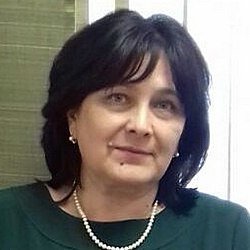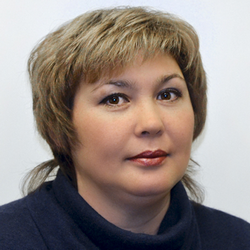‘Social workers haven’t cared this way’ — Tatarstan launches new service of Carer
Over half a billion rubles from the regional and federal budgets will be allocated for the pilot project
The pilot project of the service Carer has been renewed in Tatarstan since February. A corresponding decree No. 60 of the government was published on the official portal of law database. The initiative is taken within The Older Generation programme of Demography national project. Almost 150 million rubles will be allocated to organise care for old citizens and disabled people this year, another 400 million will be given in the next five years. Realnoe Vremya found out why a carer’s services could be different from a social worker’s help — precisely they serviced this category of Tatarstan residents.
How will the service be provided?
Deliberately trained specialists will take care of old Tatarstan residents in Carer pilot project. The programme is designed until 2022 and it determines the way the service will be provided and how much it will cost (it isn’t free, more precisely, it isn’t free for everyone).
The service will be free for those whose average per capita income is below or equal to a minimum wage equal to twice in the region. Everyone whose income is above this bar will be charged an hourly fee, but the amount of the fee will be different. So if income varies from 2 to 2,5 of the minimum wage, it is 10% of the full cost of the service. Then it goes up: if the indicator is above the 7,5 of the minimum wage, the cost of the service will total 75%, and no more.
The State Committee on Tariffs of the Republic of Tatarstan fixes the full cost of the service, according to the decree. Realnoe Vremya has found only tariffs for specific actions in 2019, not the full cost (for instance, going shopping in the city will be 156 rubles). However, the average cost of the carer’s hour can still be calculated on the basis of state contracts — about 150 rubles.
The document also has a list of social services that carers must provide the person they care for with: from general care and feeding to wellness check and maintenance of sanitary norms. The list of services includes almost full everyday maintenance of an old person: cooking, cutting his or her hair (including nails), change of underwear and bedsheets, cleaning in the flat, purchase of foodstuffs (not at the carer’s expense) and medications and so on.
The decree explains requirements for carers too. A person must have knowledge and skills according to a special professional standard for carers, do a medical examination to get a work permit and not have a criminal record.
To ask for a carer for an old person in this programme, this person or his or her proxy should go to a local social protection body.
“This project began operation in pilot mode in bigger cities of the republic: Kazan, Nizhnekamsk, Naberezhnye Chelny, Yelabuga, Zelenodolsk, and from 10 to 100 people need such a service. A carer stays with the same person (probably with mental disorders) who needs long-term care for six hours every day. The specifics are that social workers have never cared about one person in such a regime. Undoubtedly, all carers take special training courses. The programme promotes a new service in several regions. Tests are done in Tatarstan, correct mechanisms are chosen. We are receiving feedback. The service is in demand, of course. Bedridden people’s relatives have an opportunity to work,” the Tatarstan president’s aide Leyla Fazleyeva explained the idea of the new project.
A non-profit organisation from Naberezhnye Chelny has been providing services of carers in Almetyevsk District since 16 September, which joined this programme as early as last year. Sariya Mukhametshina, the director of Custody Integrated Social Service Centre’s Home Care and Social Service Department in Almetyevsk District, explained differences between services of a social worker and carer:

According to Custody, the new service envisages that “a carer is assigned to one person who completely lost any ability to take care of himself or herself, who is bedridden. Last year, the norm was 12 hours, from 8 a.m. to 8 p.m. The coverage was 15 people. This year the staff has assumed duties according to new conditions since 16 February and will work for six hours, while the plan is designed for 22 people. The carer carries out hygiene procedures, buys foodstuffs, medication, cooks, tidies up the flat, changes diapers, renews urinals”.
Sariya Mukhametshina noted that social workers in the social service centre would stay there. Relatives of people who need help either order a certain set of services a social worker does or hires a carer.
“Carers must take courses — 140 hours of training on care for severely ill people. There is no shortage of specialists. More people want to do this job than needed. There are a lot of pensioners among carers whose health allows taking care of other people. There is a man in our district who has a degree in nursing and is hard of hearing because of which he can’t work in a medical institution. But a hearing aid allows him working and he perfectly performs his duties as a carer,” the head of Custody said.
Director of Trust social service centre in Yelabuga District Iliza Chernysheva said that Yelabuga was just joining the programme, the project was due to start here on 15 February. At the moment seven people in the district need carers’ services. The centre will cooperate with an office of Assistance ANO in Naberezhnye Chelny.

“It is better than looking for a carer in the private market, who knows who will come — there are a lot of both crooks and people who aren’t ready for such a hard job. It is good that such a project is implemented by the state. There are specialised services, their staff is trained on how to work with a category of citizens who need constant care. Professional carers are reliable and officially employed,” Chairwoman of the Committee on Social Policy of the Tatarstan State Council Svetlana Zakharova commented.
What happened to the programme at first
The programme kicked off in Tatarstan in September 2019 — municipal contracts within the programme were signed at the same moment, the regulation had been approved in late July. The main difference of the programme of 2019 from the new regulation is in the threshold of the per-capita income below which the service isn’t charged a fee. In 2019, it totalled 2,5 of the minimum wage, this bar has been lowered twice in 2020-2022.
However, one can also pay attention to the amendments that were adopted on 31 October 2019 — different mentions of payment for services in general were eliminated. Since then services in the programme Carer were declared free till the end of the year.
“A decree came to light last year that said that a person whose income is equal or doesn’t exceed 2,5 of the minimum wages could receive the service free, and it was 7,742 rubles. But then these conditions were cancelled, and since October, it is when Kazan joined the project, the service was provided for free. Last year, the social service centre held a competition, and we were given money to provide a carer’s service to 95 people. Everyone who needed a carer received such a service,” Vice Director of Kazan Integrated Social Service Centre Gulnara Murzina confirmed.
“The programme was introduced as a trial balloon. We needed to evaluate the demand for this service and the solvency of people who need it. We saw that Tatarstan residents who have a lot of relatives who can pay for the service need the care. This is why a payment has been introduced this year, and the per-capita income for free service has been a bit lower, but at the same time we are lifting the burden with a system of discounts,” Vice Minister of Labour, Employment and Social Protection of Tatarstan Yuliya Abdreyeva explained everything.
Logically, the regulation of 2019 was in force until 31 December 2019. And the new regulation was adopted on 31 January 2019. So there was a month-long gap in the programme.
“We received federal money only in late January, and we couldn’t begin the programme earlier. We offered home services of social centres during this period,” the vice minister explained.

Zainsk District was in the decree last year, but it is absent in the new programme. As Yuliya Abdreyeva said, demand for carers this year in Zainsk isn’t high — just five people. This is why a local social service centre is doing well on its own.
New tenders for services haven’t appeared yet (at least we didn’t manage to find them), but the new regulation foresees that this issue will be resolved. According to the document, the same organisations that won tenders in 2019 will supply the services in 2020.